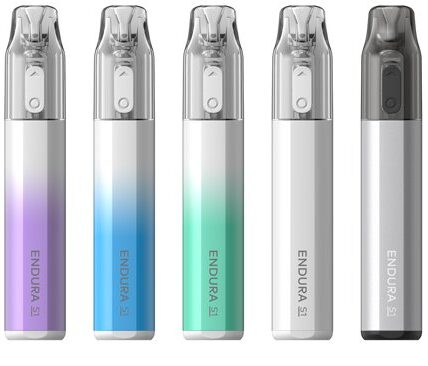For individuals seeking to break free from traditional smoking or looking for nicotine alternatives with fewer health risks, the world of smokeless alternatives offers a diverse range of options. These alternatives provide a way to satisfy nicotine cravings without inhaling harmful smoke. In this article, we will delve into various smokeless alternatives, highlighting their benefits, drawbacks, and the potential they hold for those looking to transition to a healthier lifestyle.
- Nicotine Replacement Therapy (NRT)Nicotine replacement therapy products are approved by health authorities and designed to help individuals quit smoking by providing controlled doses of nicotine without the harmful toxins found in tobacco smoke. Common NRT products include nicotine gum, patches, lozenges, and inhalers.Benefits:
- Controlled nicotine intake.
- Reduced withdrawal symptoms.
- Available over the counter.
- May not fully replicate the sensory experience of smoking.
- Gradual reduction in nicotine levels required for successful quitting.
- Smokeless Tobacco ProductsSmokeless tobacco products, such as snus and chewing tobacco, offer an alternative to smoking. Users place these products in their mouth to absorb nicotine through the oral mucosa.Benefits:
- Smokeless, reducing harm associated with inhalation.
- Instant nicotine delivery.
- Still associated with oral health risks, including gum disease and oral cancer.
- Limited popularity outside specific regions.
- E-Cigarettes and VapingElectronic cigarettes and vaping devices have gained popularity as smokeless alternatives to smoking. These devices vaporize e-liquids, providing users with nicotine and various flavor options.Benefits:
- Smoke-free, reducing exposure to harmful chemicals.
- Wide variety of flavors and customization options.
- E-cigarettes have helped many smokers quit.
- Long-term health effects are still being studied.
- Concerns about youth appeal and safety regulations.
- Herbal AlternativesSome people opt for herbal smoking alternatives, such as herbal cigarettes or vaping blends. These products contain no nicotine and are made from various dried herbs.Benefits:
- Nicotine-free.
- Some users find them helpful for transitioning away from nicotine.
- Limited research on their long-term safety.
- May not effectively replicate the smoking experience.
Conclusion
Smokeless alternatives provide smokers with a range of choices to reduce or eliminate the harm associated with traditional smoking. While each option comes with its own set of benefits and drawbacks, it’s essential for individuals to carefully consider their preferences and health goals when selecting a smokeless alternative.
Moreover, consulting with healthcare professionals and seeking guidance from smoking cessation programs can significantly increase the chances of successfully quitting smoking or transitioning to a less harmful nicotine consumption method. As research continues to shed light on the safety and efficacy of these alternatives, individuals can make informed decisions that support their journey toward a healthier lifestyle.




